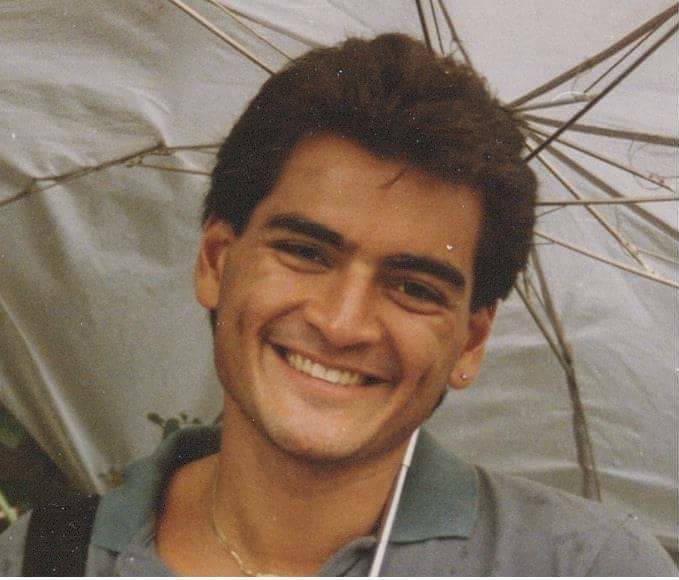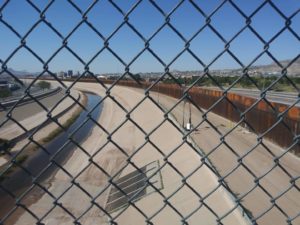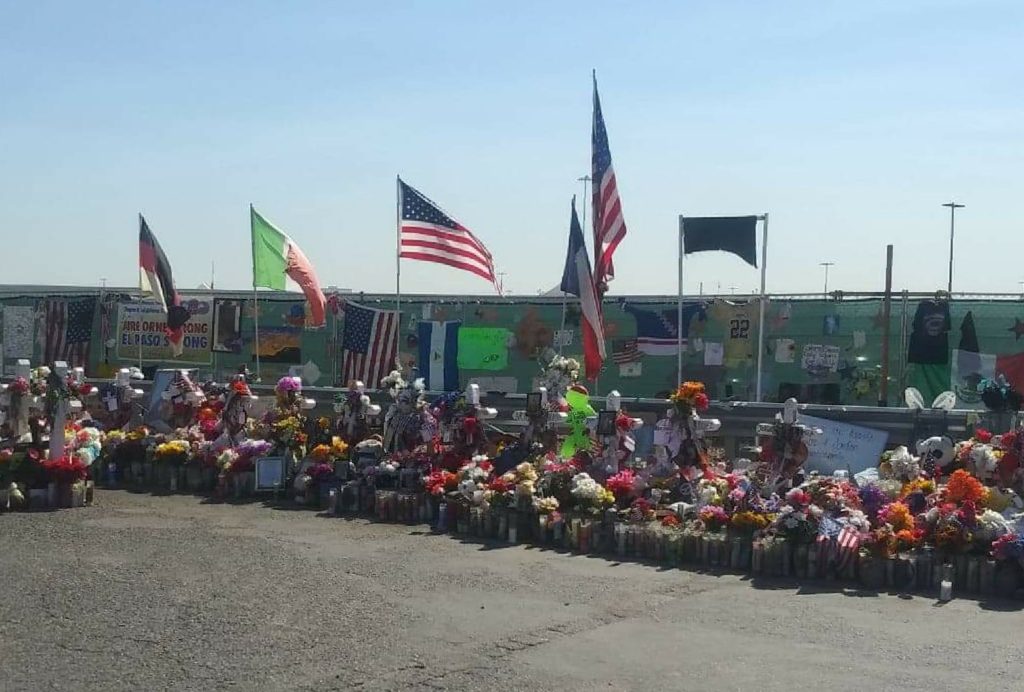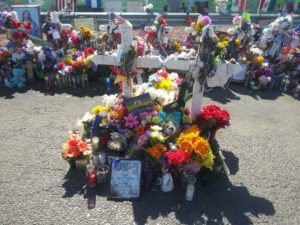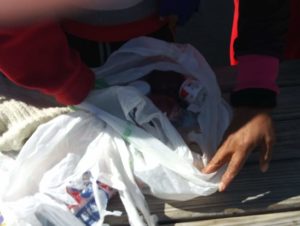Platos fuertes: Reflections on my visit to the desert borderlands
 December 25, 2019
Category: Featured, Long, Purpose
December 25, 2019
Category: Featured, Long, Purpose
Our family holiday celebrations will be different this year. We normally have a large empty plate and a table-setting for ancestors, and also, to acknowledge a lack of want. Now we will have two.
Call it the metaphor of the platos fuertes. Idiomatically and in the singular form, it can mean “a lot on the plate.” Symbolically, it is a noteworthy meal that helps cure a need such as hunger. As a literature device, it is a clear central theme.
This is where I feel my ‘Latinidad’ is at even though I am thoroughly ‘American’ and have familial roots here for well over a century. But because of contemporary connection-making and existential issues such as migrants at the Southern Border, people in “detention facilities,” and, forcibly separated families, we amplify and *intertwine* here. We also recognize similar solidarity with laborers in the fields and factories who make our food readily possible. The forces of downward pressure emphasize and concentrate our linkages. That is my view.
But in my family we do more than just wring hands over dinner talk. We engage in action to go forward. And, action is really needed.
This line of thinking is how I found myself in the desert borderlands of El Paso and Ciudad Juárez in the fall. [Note: El Paso/Juárez is the nation’s second largest point of entry after San Diego/Tijuana.]
I learned about a migrant justice conference where practical, technical, and, theological teachings were offered. I knew I had to go in order to become a more effective advocate since dire needs and devilish acts are an unwanted constant.
I set up a Go Fund Me account and found a discount airline package to get there. [Note: People who want to learn how to travel to El Paso for border work in an economical fashion are welcome to contact me.]
Friends and family funded. Things clicked.
Other things clicked too. Like when I walked to the El Paso Walmart massacre site memorial. In this deadliest domestic attack on Latinos, 46 people were killed or gravely injured here by a marauding white supremacist on August 3, 2019. “Matanza here. Matanza at the border… just slower,” I later thought to myself. Matanza means massacre in Spanish.
The memorial was a block long and filled with flowers, messages, votive candles, rosaries, Bibles, keepsakes, and carefully crafted wooden crosses. The expressed compassion, empathy, and respect made the experience unavoidably emotional. The community is still in recovery. I went every day.
When not at the Walmart memorial or the conference, I crossed the border with food and clothes stuffed into a very large backpack. On my first day I walked into a park named for Benito Juarez, the revered indigenous Oaxacan lawyer and Mexican president.
The large migrant camp here was well-run as the Cruz Roja (Red Cross) was present. But there were problems. There was no regular school for the children. People were living in tents for months on end, a significant factor now being the U.S. government’s “Remain In Place” policy. (R.I.P. — get it?)
The park showed environmental stress. Barren ground and dusty compacted soil were common. But the firepits really stuck out. Scores of holes were dug in the ground, sometimes aided with rocks or brick to help radiate heat or protect flame. The land was also being deforested to make these fires for light, to keep warm, or to even cook.
The camp living here was still magnitudes better than in other parts of Juárez such as Paso del Norte. Not only was this border area heavily militarized, but migrants desperately begged in the streets.
I stopped cold walking just after crossing the border. A family of four with two young children faced me. A parent held up a laminated sign with the Nicaraguan flag, my grandfather’s small country of origin. It was impossible for me to ignore. Or to ignore this profound chance encounter. I returned to them and emptied out my backpack.
Sweet breads, yogurts, fruits, cereals, and more were my gift to them. Wide-eyed and very grateful, they treated it like winning the lottery. And in a way they had. Inside one of the food bags was a brown bank envelope with just over $1,000 Mexican pesos (roughly $50 US) that a friend gave me.
I didn’t witness any more. I left after a brief conversation and instructions to look for the envelope, *el sobre.* I was going into pieces and was deeply shamed by knowing their plight was avoidable, intentional, and quite representative of thousands and thousands of people.
Roughly 10 weeks have now passed since I left the borderlands. But the borderlands have not left me. The trip remains with me.
I remind myself that the point was not to merely visit and give aid there, or to be distracted in focus by those minor but important acts.
The point of going was to bear witness, to galvanize myself and others for the helpful and reparative tasks at hand, and to prepare for the current and future issues that involve long-term processes.
I find there is no other way to address and undo what is happening at the border and elsewhere, and that people need to join in.
This is the lesson of the *platos fuertes.* We must make it a central theme.
###
For more information about border issues in the El Paso area and elsewhere, visit:
Trending News







